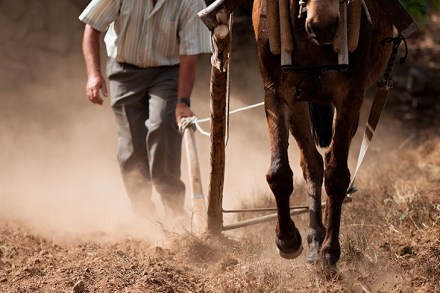Does ‘swathe’ rhyme with ‘bathe’ or ‘moth’?
At Glastonbury in 2017 ‘a whole swathe of young people had a political awakening’, chanting ‘Oh, Jeremy Corbyn’, said the Guardian last week. Swathes tend to be whole. Either that or vast, huge, great. Soldiers on first world war battlefields were mown down in them. If a swathe retains a literal meaning, on which its metaphorical use relies, it is presumed to be a sweep of hay or corn cut down by a scythe. What strikes me is the pronunciation. Everyone makes it rhyme with bathe. If anyone used the first pronunciation given by the Oxford English Dictionary, rhyming with moth, they’d hardly be understood. The second pronunciation recorded by














